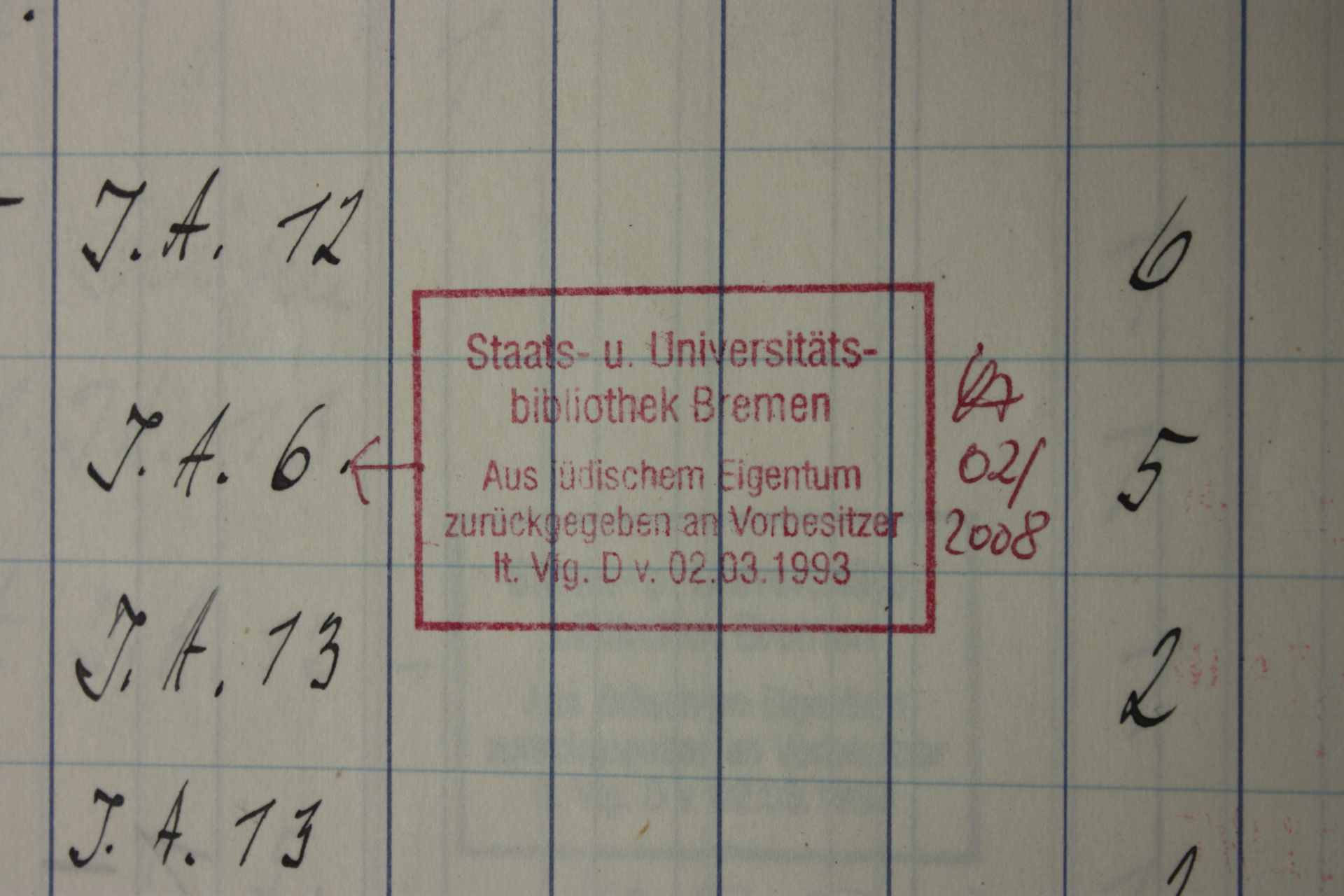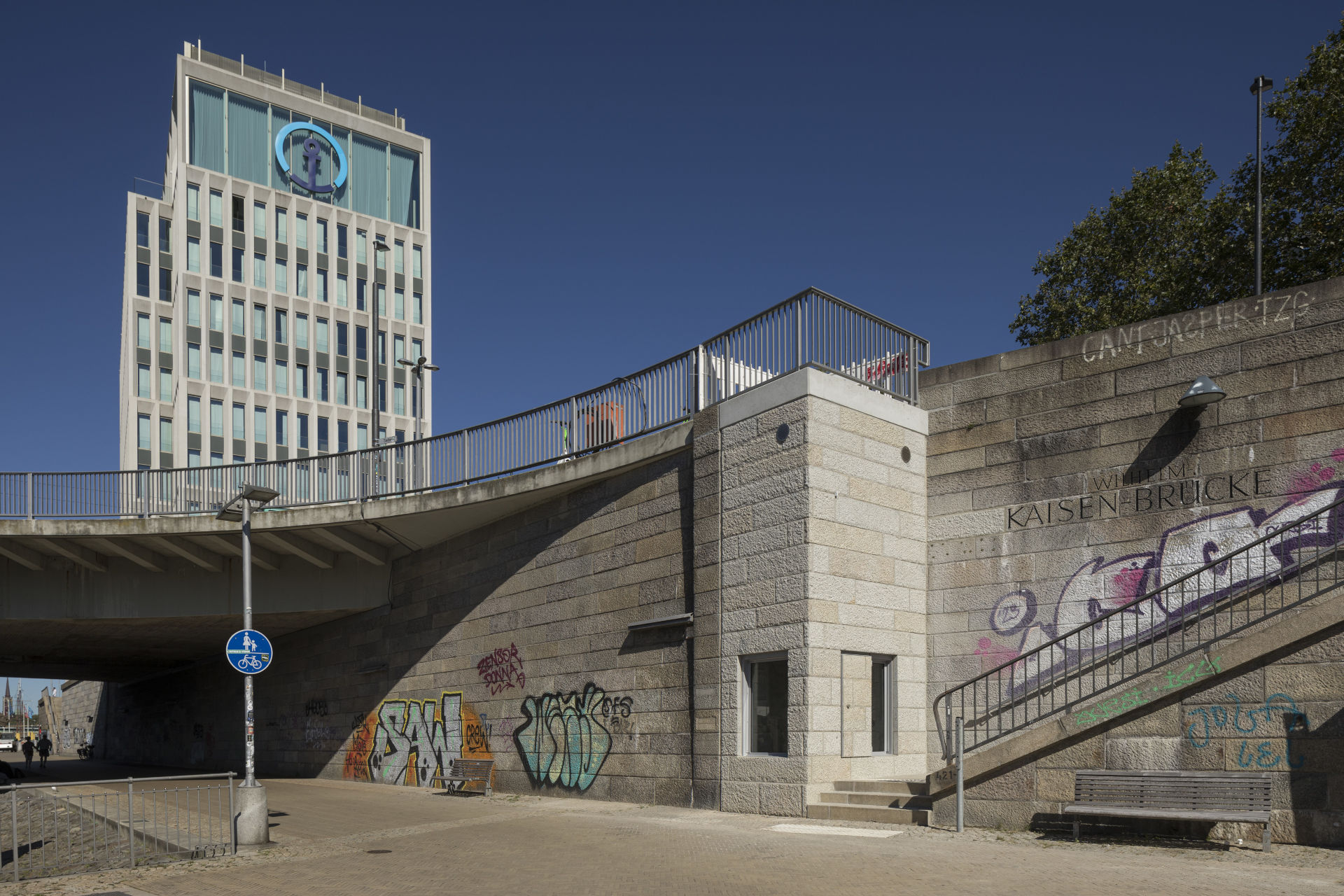In 2015, this installation marking the process of ‘Aryanisation’ was initiated by civil society engagement. It was inaugurated on September 10th, 2023.
Blanks and gaps in history
During the period of National Socialism (1933-1945) in Germany, the Jewish population was systematically persecuted, robbed, driven into emigration or murdered. Most of their homes were ransacked and looted.
The empty spaces on the walls of the memorial represent the stolen furniture and personal belongings.
Authorities and companies encouraged the plundering and actively took part in it. As in the rest of the ‘German Reich’, many inhabitants of Bremen participated in the liquidation of the property of their Jewish fellow citizens. There were even mass sales of Jewish property during the war for which public spaces like the restaurant of the Weser Stadium were used. Both the plundering and the liquidation of property were part of the National Socialist policy.
As an important European harbour, the city of Bremen furthermore benefited from the forced emigration of Jewish citizens. After the start of the war, instead of being shipped to their owners, large numbers of moving boxes ended up at so-called ‘Jewish auctions’ in town. Kühne+Nagel, a logistics company founded in Bremen, opened branches in many occupied European countries and thus ensured its central role in the liquidation of Jewish assets. The company has not dealt with this part of its business’ history.
The historical narratives of businesses and private people who had profited by the plundering is characterised by gaps and blind spots. Many of the looted goods still can be found in private households. They are being passed on to the following generations or sold at flea markets and in the antiques trade. While their provenance is repressed and forgotten, these objects continue to be missing in Jewish families - for whom they would also represent a memory of their relatives.
Most of the Jewish property was never returned.




